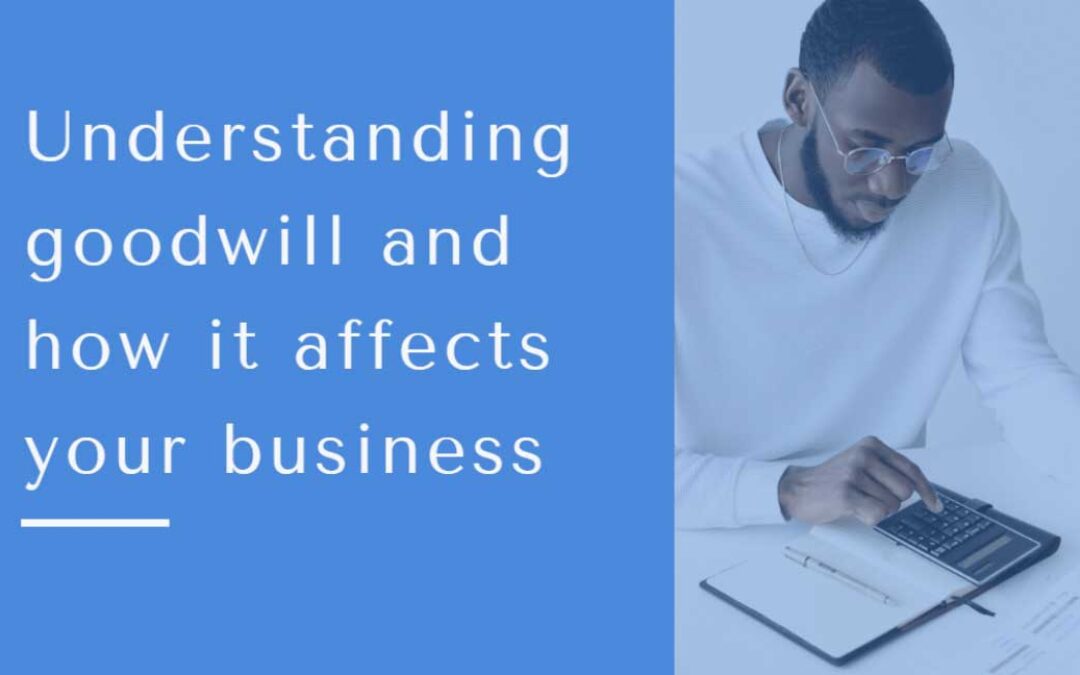Goodwill is one factor that contributes to the overall value of your business. It is considered an intangible asset which means you can’t touch it, like a product or piece of equipment. Even though it is intangible, goodwill impacts the selling price of a business. Understanding how something intangible has an objective monetary value can be confusing.
Simply put, goodwill is the amount a company is worth above its net assets at fair value. This number isn’t pulled out of thin air; companies should be recording goodwill as an intangible asset on their annual balance sheet. Unlike other intangible assets, goodwill typically cannot be sold separately from the business. Examples of goodwill include
- Established trade names;
- Proprietary technology;
- Copyrights, trademarks, patents, formulas, and recipes;
- Established customers;
- Contracts in place;
- Trained employees;
- Operations manuals;
- Software systems that have been developed and installed;
- Websites and online assets like social media accounts;
- Premises leases; and
- Non-compete covenants.
It is important to understand that just because the abovementioned things are in place, it doesn’t mean that goodwill will increase the sale price of your business. The value of goodwill is generated from the company’s ability to earn sustainable cash flow.
Many business owners inflate the value of goodwill when pricing their business to sell and buyers often balk at the assessment. There is a specific formula that can be used to objectively determine the right sale price for a business that includes goodwill. Working with an experienced and qualified business broker is a great way to determine the price for your business that gives you a return on investment and helps buyers understand the value of the business beyond cash flow statements.

